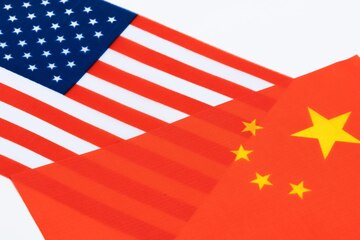US President Donald Trump announced on Wednesday that China will make it easier for American industry to obtain much-needed needed magnets and rare earth minerals, clearing the way for talks to continue between the world’s two biggest economies.
In return, Trump said, the US will stop efforts to revoke the visas of Chinese nationals on US college campuses, reports AP.
Trump’s comment on social media came after two days of high-level US-China trade talks in London to resolve conflicts that had emerged since the two sides agreed a truce in May, after a rapid escalation of tariffs had nearly paralysed trade between the world’s two largest economies.
However, details remain scarce. Trump did not fully reveal what concessions the US made. Beijing has not confirmed what the negotiators agreed to, and Chinese President Xi Jinping and Trump himself have yet to sign off on it.
US Commerce Secretary Howard Lutnick told reporters the two sides had “reached a framework to implement the Geneva consensus”.
“Once the presidents approve it, we will then seek to implement it,” he added.
Trump’s own comments created confusion about what was happening to his taxes – tariffs — on Chinese imports, generating uncertainty about more than $660 billion in annual trade between the two countries.
On social media, Trump declared, “WE ARE GETTING A TOTAL OF 55% TARIFFS, CHINA IS GETTING 10%. RELATIONSHIP IS EXCELLENT!” But a White House official, who was not authorized to discuss the terms publicly and insisted on anonymity to describe them, said the 55% was not an increase on the previous 30% tariff on China because Trump was including pre-existing tariffs, including some left over from his first term.
In a follow-up social media post, Trump said he and Xi “are going to work closely together to open up China to American Trade. This would be a great WIN for both countries!!!”
The framework emerged late Tuesday in London after intense talks involving US Treasury Secretary Scott Bessent, Commerce Secretary Howard Lutnick and US Trade Representative Jamieson Greer. Leading the Chinese delegation was Vice Premier He Lifeng.
Bessent, who was testifying before Congress on Wednesday, said the recent talks had been narrowly focused and a more comprehensive deal would take time.
“It will be a much longer process,” he said.
In the same hearing, he acknowledged that trade talks with other countries might extend beyond the administration’s self-declared 90-day deadline.
“It is highly likely that for those countries that are negotiating – or trading blocs, in the case of the EU – who are negotiating in good faith, we will roll the date forward to continue the good-faith negotiation. If someone is not negotiating, then we will not,” he said.


